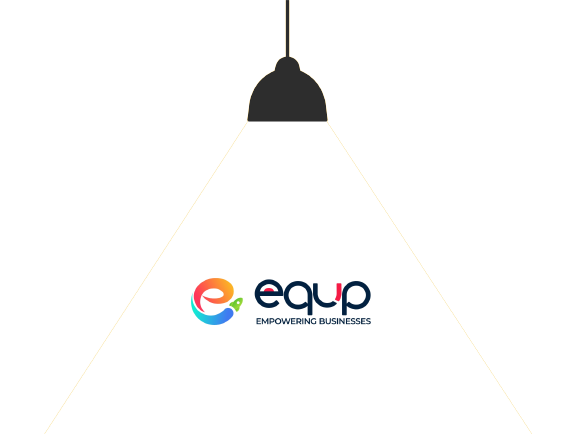 Competing in a dynamic business landscape demands a strategic approach to marketing and sales. HubSpot, an industry giant in the realm of all-in-one marketing and sales platforms, has long been celebrated for its remarkable suite of tools that empower businesses to enhance customer relationships, drive revenue, and amplify their online presence. However, the costs associated with HubSpot’s comprehensive features and functionality can often prove prohibitive for small and medium-sized enterprises.
But here’s the good news: you don’t have to break the bank to harness the power of marketing automation, customer relationship management, and lead generation. In this blog, we will explore an array of compelling HubSpot alternatives that won’t just save you money, but also provide you with the tools you need to effectively compete in the market, regardless of the size of your budget. We will also discover that affordability need not be synonymous with sacrificing quality or capabilities. The landscape is evolving, and so are the HubSpot alternatives available to businesses of all sizes.
From powerful marketing automation platforms to intuitive CRM software, these HubSpot alternatives are designed to cater to the unique needs and budgets of diverse enterprises. Whether you’re a budding startup looking to establish a strong online presence or a growing company seeking to scale your marketing efforts without breaking the bank, this blog will serve as your guide to finding the perfect HubSpot alternatives that align with your goals and resources.
So, if you’re ready to empower your business without the financial burden, read on and discover the world of cost-effective marketing solutions that can help you not only compete but thrive in today’s fiercely competitive marketplace. It’s time to unlock the potential of your marketing and sales strategies, all while keeping a keen eye on your budget. Let’s start this journey of discovery and redefine what it means to “Compete on a Budget.”
Competing in a dynamic business landscape demands a strategic approach to marketing and sales. HubSpot, an industry giant in the realm of all-in-one marketing and sales platforms, has long been celebrated for its remarkable suite of tools that empower businesses to enhance customer relationships, drive revenue, and amplify their online presence. However, the costs associated with HubSpot’s comprehensive features and functionality can often prove prohibitive for small and medium-sized enterprises.
But here’s the good news: you don’t have to break the bank to harness the power of marketing automation, customer relationship management, and lead generation. In this blog, we will explore an array of compelling HubSpot alternatives that won’t just save you money, but also provide you with the tools you need to effectively compete in the market, regardless of the size of your budget. We will also discover that affordability need not be synonymous with sacrificing quality or capabilities. The landscape is evolving, and so are the HubSpot alternatives available to businesses of all sizes.
From powerful marketing automation platforms to intuitive CRM software, these HubSpot alternatives are designed to cater to the unique needs and budgets of diverse enterprises. Whether you’re a budding startup looking to establish a strong online presence or a growing company seeking to scale your marketing efforts without breaking the bank, this blog will serve as your guide to finding the perfect HubSpot alternatives that align with your goals and resources.
So, if you’re ready to empower your business without the financial burden, read on and discover the world of cost-effective marketing solutions that can help you not only compete but thrive in today’s fiercely competitive marketplace. It’s time to unlock the potential of your marketing and sales strategies, all while keeping a keen eye on your budget. Let’s start this journey of discovery and redefine what it means to “Compete on a Budget.”
The Need for Budget-Friendly HubSpot Alternatives
 HubSpot, a comprehensive marketing and sales platform, has long been a go-to solution for businesses of all sizes. However, for many smaller enterprises and startups, the cost of HubSpot can be a significant roadblock. This is where the need for budget-friendly HubSpot alternatives comes into play.
Small and medium-sized businesses often operate with limited resources, and every penny spent on marketing and sales tools must be carefully allocated. While HubSpot offers a wide range of features that can undoubtedly propel your business forward, its pricing structure might not align with your budget constraints. It’s crucial to recognize that there are HubSpot alternatives available that offer robust functionality without the hefty price tag.
HubSpot, a comprehensive marketing and sales platform, has long been a go-to solution for businesses of all sizes. However, for many smaller enterprises and startups, the cost of HubSpot can be a significant roadblock. This is where the need for budget-friendly HubSpot alternatives comes into play.
Small and medium-sized businesses often operate with limited resources, and every penny spent on marketing and sales tools must be carefully allocated. While HubSpot offers a wide range of features that can undoubtedly propel your business forward, its pricing structure might not align with your budget constraints. It’s crucial to recognize that there are HubSpot alternatives available that offer robust functionality without the hefty price tag.
- Cost Efficiency: HubSpot’s pricing can be substantial, particularly for businesses with limited financial resources. Small businesses and startups may find it challenging to allocate a significant portion of their budget to a single software platform. By exploring budget-friendly HubSpot alternatives, you can significantly reduce your expenses while still benefiting from essential marketing and CRM features.
- Scalability: As your business grows, so do your software needs. Transitioning from a budget-friendly alternative to a more comprehensive solution like HubSpot can be a logical progression. By starting with a cost-effective alternative, you can scale your marketing efforts in line with your growth without incurring excessive costs from the beginning.
- Tailored Solutions: Not every business requires the full suite of features offered by HubSpot. Many smaller companies can thrive with a more targeted and budget-friendly solution that caters to their specific needs. This approach allows you to invest in tools that directly benefit your business, avoiding unnecessary expenses.
- Risk Mitigation: Investing a substantial portion of your budget in a single software platform can be risky, especially for newer businesses. If the platform doesn’t meet your expectations or your business takes a different direction, you could face financial setbacks. Budget-friendly HubSpot alternatives often come with less financial risk, allowing you to experiment and pivot more easily.
- Competitive Edge: Finding budget-friendly HubSpot alternatives that meet your needs give you an edge over competitors who might be struggling with expensive solutions. It enables you to allocate more resources to other aspects of your business, such as product development, customer service, or marketing campaigns.
1. EQUP: A Cost-Effective Contender
 EQUP is a rising star in this arena, offering a host of features and capabilities without the hefty price tag associated with some of its more established counterparts. It is an all-in-one CRM platform that is gaining recognition for its affordability and user-friendly interface. It’s designed to meet the needs of businesses across various sizes and industries, making it a cost-effective contender in the realm of marketing automation and CRM.
Key Features of EQUP
EQUP is a rising star in this arena, offering a host of features and capabilities without the hefty price tag associated with some of its more established counterparts. It is an all-in-one CRM platform that is gaining recognition for its affordability and user-friendly interface. It’s designed to meet the needs of businesses across various sizes and industries, making it a cost-effective contender in the realm of marketing automation and CRM.
Key Features of EQUP
- Booking Automation: EQUP provides robust booking automation tools, allowing you to schedule and manage appointments, meetings, and reservations seamlessly, saving time and streamlining your booking processes.
- Sales Automation: With EQUP’s sales automation features, you can effectively manage your sales pipeline, automate sales tasks, and track leads and deals, ultimately boosting your sales efficiency.
- Marketing Automation: EQUP’s marketing automation capabilities empower you to create, execute, and manage marketing campaigns, automate marketing workflows, and nurture leads, enhancing your marketing endeavors.
- Omnichannel Communication: EQUP offers omnichannel communication options, enabling you to engage with your customers across various communication channels, ensuring a consistent and personalized customer experience.
- Workflow Automation: EQUP’s workflow automation tools allow you to automate routine tasks and processes, reducing manual workloads and increasing overall efficiency.
- Email Marketing: EQUP includes email marketing capabilities, enabling you to create and send email campaigns, track their performance, and segment your audience for more targeted communication.
- User-Friendly Interface: One of EQUP’s strengths is its intuitive user interface, which simplifies the learning curve for your team, saving time and potential frustration.
2. Zoho CRM: A Smart Choice for Small Businesses
 Zoho CRM emerges as an intelligent choice for small businesses looking to strike the right balance between affordability and functionality. It is a part of the Zoho suite, a collection of cloud-based software applications designed to cater to the needs of businesses of all sizes. Zoho CRM, in particular, is a powerful tool that allows small businesses to streamline their sales, marketing, and support processes. Here’s why it stands out as an excellent choice for small enterprises:
Zoho CRM emerges as an intelligent choice for small businesses looking to strike the right balance between affordability and functionality. It is a part of the Zoho suite, a collection of cloud-based software applications designed to cater to the needs of businesses of all sizes. Zoho CRM, in particular, is a powerful tool that allows small businesses to streamline their sales, marketing, and support processes. Here’s why it stands out as an excellent choice for small enterprises:
- Affordability: Small businesses often have tight budgets, and Zoho CRM recognizes that. Zoho offers a range of pricing plans, including a free version with limited features. The paid plans are reasonably priced and offer features that scale with the needs of your business.
- Ease of Use: Zoho CRM is known for its user-friendly interface. It’s easy to set up and configure, making it accessible to even those who might not be tech-savvy. This simplicity reduces the learning curve for your team, allowing them to start using it effectively in a short amount of time.
- Scalability: While Zoho CRM is an excellent choice for small businesses, it doesn’t leave you hanging as you grow. It can accommodate your expanding needs, whether it’s adding more users, managing a larger customer database, or integrating with other Zoho apps and third-party tools.
- Contact Management: Zoho CRM’s core functionality focuses on contact management, allowing you to store and access essential customer information with ease. This is crucial for small businesses that rely on personalized interactions and maintaining strong customer relationships.
- Sales and Marketing Automation: Zoho CRM provides essential sales and marketing automation features. You can automate routine tasks, such as lead nurturing and follow-ups, which can save your team valuable time and ensure no potential opportunity falls through the cracks.
- Customization: Every small business is unique, and Zoho CRM recognizes that. It offers customization options, allowing you to tailor the software to meet your specific requirements. You can create custom fields, modules, and workflows to align the CRM with your business processes.
- Reporting and Analytics: Zoho CRM provides insightful reporting and analytics features. Small businesses can use these tools to track their sales performance, identify trends, and make data-driven decisions to improve their strategies.
- Mobile Accessibility: In today’s fast-paced world, having access to your CRM while on the go is crucial. Zoho CRM offers a mobile app, ensuring you can manage your customer data and sales activities from anywhere.
- Integration: Zoho CRM seamlessly integrates with other Zoho applications and third-party software, allowing you to build a complete ecosystem that meets all your business needs.
3. Pardot: Enterprise Solutions for Less

Pardot offers enterprise-level solutions without breaking the bank, making it an attractive option for businesses looking to maximize their marketing capabilities while keeping expenses in check. It is a marketing automation platform designed primarily for business-to-business (B2B) marketing. It offers a wide array of features that streamline marketing and sales processes, helping companies generate and nurture leads, as well as track and measure their marketing efforts. Pardot seamlessly integrates with Salesforce, making it a valuable choice for those already using Salesforce for their CRM needs.
Cost-Effective Enterprise Solutions
The first thing that might surprise you about Pardot is its cost-effectiveness in the realm of enterprise-level marketing automation. While it may not be the cheapest solution on the market, it certainly offers a compelling balance between features and affordability. Here are some key aspects that make Pardot an attractive option:
- Scalable Pricing: Pardot offers pricing tiers suitable for businesses of various sizes. This means you only pay for the features and capacity you need, making it a cost-effective solution that grows with your company.
- Seamless Integration: If your business is already using Salesforce, the integration with Pardot is seamless. This ensures that your marketing and sales teams can work cohesively and efficiently.
- Advanced Lead Scoring: Pardot’s lead scoring system allows you to identify and prioritize leads more effectively, increasing your chances of conversion and revenue generation.
- Robust Reporting and Analytics: Pardot provides in-depth reporting and analytics, enabling you to measure the impact of your marketing campaigns and refine your strategies for better results.
- Automation Tools: Marketing automation is at the core of Pardot’s offerings. Automated lead nurturing, email marketing, and campaign management streamline your marketing efforts, saving time and resources.
- Engagement Studio: Pardot’s Engagement Studio is a powerful feature that helps you create personalized customer journeys, enhancing engagement and increasing conversion rates.
When Pardot Makes Sense
Pardot is an ideal choice when:
- Your business operates in the B2B sector.
- You need a marketing automation platform that seamlessly integrates with Salesforce.
- You want to take advantage of advanced lead scoring and nurturing features.
- Your company is at the enterprise level or is rapidly scaling and requires a marketing automation solution that can keep up with growth.
- Robust reporting and analytics are essential for your decision-making process.
By choosing Pardot, you can compete effectively in the market without compromising your budget.
4. GetResponse: Flexible Pricing for All

When it comes to marketing automation and email marketing, GetResponse is a name that stands out for its flexibility in pricing. This section will delve into what makes GetResponse a great choice for businesses of all sizes looking to save money while still accessing powerful marketing tools.
- Pricing Tiers that Accommodate Every Budget
GetResponse offers a range of pricing tiers, making it accessible to businesses with varying budgets. Whether you’re a small startup or a growing enterprise, you can find a plan that fits your financial needs. Here’s a brief overview of their pricing options:
- Basic: This is the most affordable plan, ideal for beginners. It includes email marketing, autoresponders, and a sales funnel.
- Plus: The Plus plan adds features like automation templates, webinars, and additional user accounts.
- Professional: A more advanced plan suitable for larger businesses, offering features like paid webinars and on-demand webinars.
- Enterprise: Tailored for enterprises, this plan includes advanced features such as transactional emails, dedicated IP addresses, and more.
This tiered pricing structure ensures that you pay only for the features you need, helping you save money by avoiding unnecessary expenses.
- Pay As You Grow
GetResponse also provides the option to upgrade as your business expands. You can start with a basic plan and then move up to more advanced features and capabilities as your business requires them. This flexibility means you don’t have to invest in a high-tier plan right from the start, which can significantly reduce your marketing expenses.
- Discounts for Annual Billing
Another cost-saving feature is GetResponse’s offer of discounts for annual billing. By choosing to pay for a year upfront, you can enjoy significant savings compared to monthly payments. This is a smart choice for businesses committed to long-term marketing strategies.
- A Wealth of Features at Your Fingertips
GetResponse doesn’t just offer flexible pricing; it also provides a robust set of features to help you achieve your marketing goals. From email marketing and automation to landing page creation and webinars, GetResponse provides the tools you need to succeed in the digital landscape.
- Excellent Customer Support
In addition to cost savings, GetResponse is known for its excellent customer support. Should you encounter any issues or have questions about your plan or features, their support team is there to assist, ensuring that you get the most out of your investment.
GetResponse is a fantastic option for businesses that want flexible pricing and a variety of features without sacrificing quality. With its tiered pricing structure, pay-as-you-grow model, and discounts for annual billing, it’s a cost-effective choice for companies of all sizes.
5. Mautic: Open Source Savings

When it comes to finding a cost-effective alternative to HubSpot, Mautic stands out as an open-source powerhouse in the marketing automation space. It provides a wide range of tools to help businesses automate marketing campaigns, manage leads, and track customer interactions. It’s highly flexible and customizable, making it a favorite among businesses that prefer to have complete control over their marketing processes.
The Advantages of Open Source
The open-source nature of Mautic comes with several advantages for businesses on a budget:
- No Licensing Costs: The most obvious benefit of open source is that there are no licensing costs. You can download and use Mautic for free, saving your business a significant amount of money compared to paid platforms like HubSpot.
- Customization: With open-source software, you have the freedom to customize it to suit your unique needs. You can adapt Mautic to your specific requirements, which is often not possible with proprietary software.
- Community Support: Mautic has a thriving user community. This means you can tap into a wealth of knowledge and resources online. You’ll find forums, user guides, and communities of like-minded individuals who are willing to help you with any questions or issues you encounter.
- Regular Updates: The open-source nature of Mautic means that the software is continuously improved and updated by a community of developers. This ensures that you have access to the latest features and security enhancements without incurring additional costs.
Key Features of Mautic
Mautic offers a wide array of features that are on par with or even surpass those of many paid marketing automation platforms. Some of these features include:
- Email Marketing: Create and manage email campaigns, automate email responses, and track engagement.
- Lead Scoring: Assign scores to leads based on their interactions with your content, helping you identify the most promising leads.
- CRM Integration: Mautic can integrate with various Customer Relationship Management (CRM) systems, helping you keep your sales and marketing efforts aligned.
- Landing Page Builder: Easily create landing pages to capture leads and drive conversions.
- Social Media Integration: Manage and track your social media interactions within the platform.
- A/B Testing: Optimize your marketing efforts by testing different elements of your campaigns.
- Reporting and Analytics: Get detailed insights into the performance of your campaigns to make data-driven decisions.
Drawbacks to Consider
While Mautic offers substantial cost savings, it’s important to consider a few potential drawbacks:
- Technical Expertise: Setting up and configuring Mautic might require some technical expertise, so businesses with limited technical resources may need to allocate time and effort to get it up and running effectively.
- Hosting Costs: Although the software is free, you’ll still need to invest in hosting and server resources, which can be an ongoing expense.
While it may not be the perfect fit for every business, Mautic’s open-source approach provides a powerful tool for businesses looking to compete effectively in the world of digital marketing without breaking the bank.
Conclusion: Finding Your Ideal HubSpot Alternative
As we wrap up our exploration of budget-friendly HubSpot alternatives, it’s important to reflect on the factors that will help you choose the ideal solution for your business. While HubSpot is undoubtedly a powerful and comprehensive platform, it’s not always the best fit for every organization, especially when cost constraints are a concern.
Here are some key takeaways and considerations to help you make an informed decision on your HubSpot alternative:
- Assess Your Specific Needs: Start by evaluating your unique business requirements. What are your primary goals? Are you looking for marketing automation, CRM, email marketing, or a combination of these services? Understanding your needs will guide you in selecting the right alternative.
- Consider Your Budget: Budget considerations often drive the search for HubSpot alternatives. While cost is important, it’s equally crucial to weigh the features and capabilities that you require against what you’re willing to pay for them.
- Scalability: Think about your business’s growth potential. Will the alternative you choose be able to scale with your company’s expansion? Ensuring that your chosen platform can grow with your business will save you time and resources in the long run.
- User-Friendliness: Ease of use is a significant factor. A user-friendly interface will reduce the learning curve for your team and lead to quicker implementation.
- Integration Capabilities: Consider the ability of your alternative to integrate with your existing software and tools. Seamless integration can improve workflow and save time.
- Trial Period: Whenever possible, take advantage of trial periods or free plans to test the alternative. This hands-on experience can provide valuable insights into how well the platform meets your needs.
- User Feedback: Don’t hesitate to seek out user reviews and feedback about your chosen alternative. Learning from the experiences of others can provide a realistic picture of what you can expect.
- Customization: Evaluate how customizable the platform is. The ability to tailor the software to your specific requirements can be a game-changer.
- Long-Term Viability: Consider the long-term viability of the alternative. Research the company’s stability and their commitment to future development and updates.
- ROI Potential: Lastly, weigh the potential return on investment (ROI). The platform you choose should not only save you money but also help you generate revenue and grow your business.
While HubSpot is an industry leader, it’s not the only option on the market. There are numerous HubSpot alternatives that can save you money while providing the tools you need to succeed in your marketing and sales efforts. By carefully considering your specific requirements, budget, and the factors mentioned above, you can confidently select the ideal HubSpot alternative that aligns with your business objectives and budgetary constraints. Finding the right fit may take time and research, but it’s an investment that can pay off in the long run.